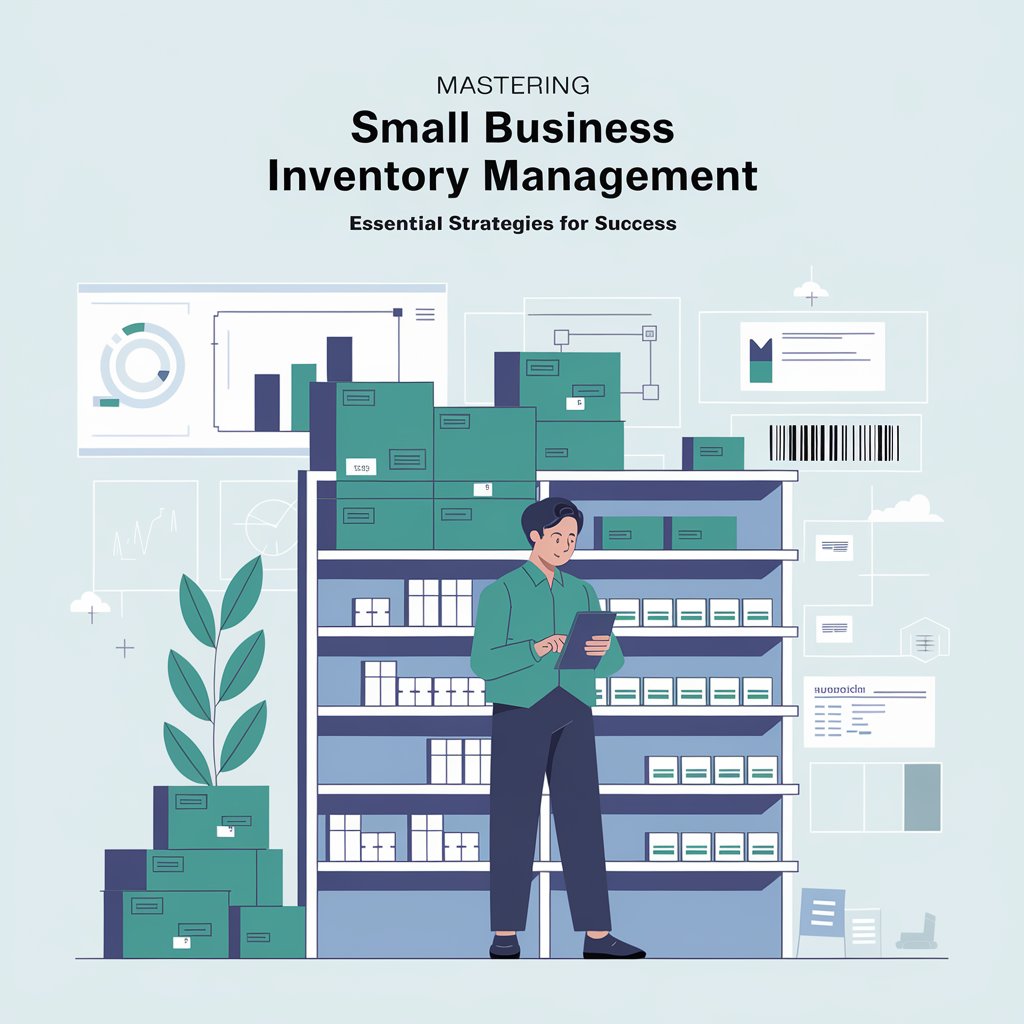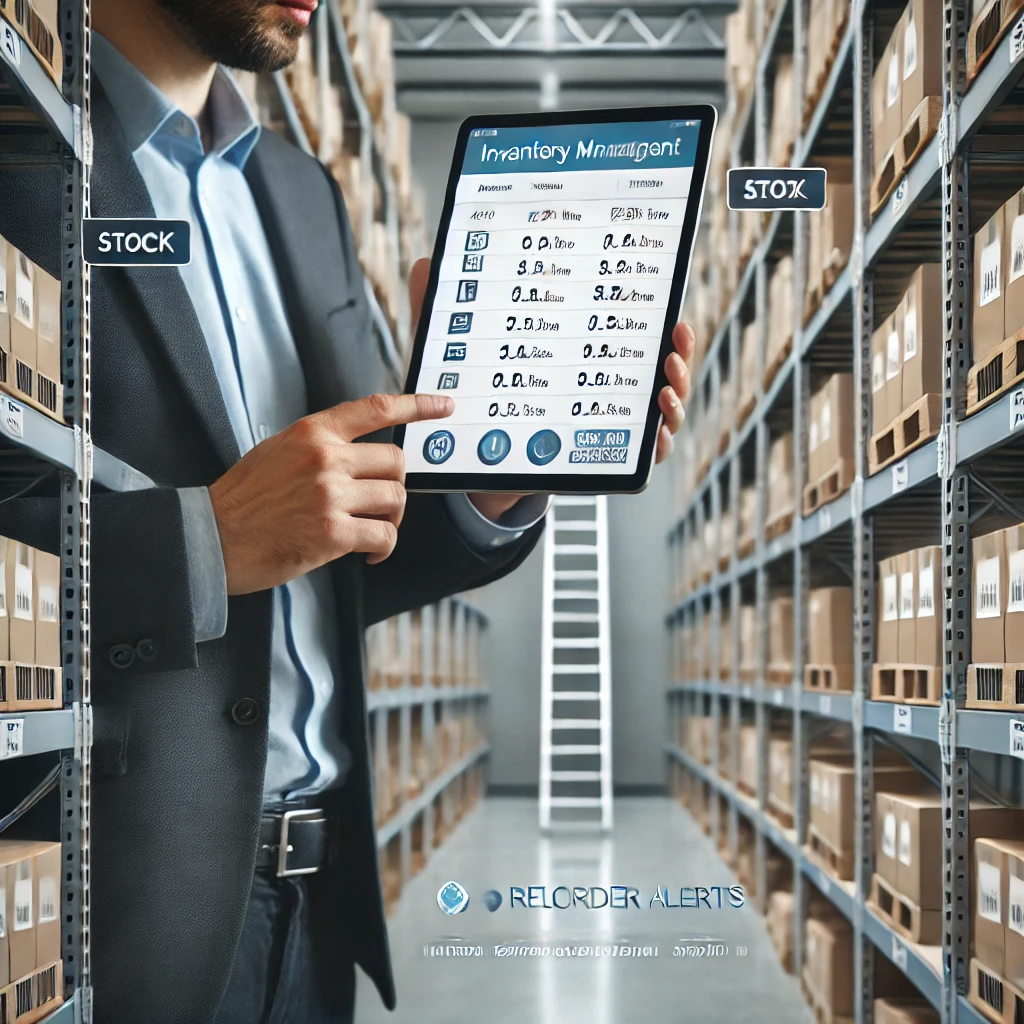Essential Small Business Apps for Inventory Management

Why Use Apps for Inventory Management?
Before diving into specific apps, let’s consider the benefits of using mobile applications for inventory management:
- Accessibility: Manage inventory from anywhere, at any time.
- Real-time Updates: Get instant insights into stock levels and sales.
- Cost-effective: Often more affordable than traditional desktop software.
- User-friendly: Typically designed with intuitive interfaces for easy adoption.
- Integration: Many apps integrate with other business tools, creating a seamless workflow.
Key Features to Look for in Inventory Management Apps
When choosing an inventory management app, consider these essential features:
- Barcode Scanning: Quickly update inventory with your smartphone camera.
- Multi-location Support: Manage stock across different warehouses or stores.
- Real-time Syncing: Ensure all devices and channels have up-to-date information.
- Reporting and Analytics: Gain insights into inventory performance and trends.
- Order Management: Track and manage customer orders efficiently.
- Low Stock Alerts: Receive notifications when items need reordering.
- Integration Capabilities: Connect with your e-commerce platform, accounting software, etc.
- Cloud Backup: Secure your data with automatic cloud backups.

Top Small Business Apps for Inventory Management
1. Linbis Inventory Pro
Best for: Small to medium-sized businesses seeking a customizable, comprehensive inventory solution.
Key Features:
- Highly customizable to fit specific business needs
- Real-time multi-channel inventory sync
- Advanced reporting and analytics
- Seamless integration with other logistics operations
- Mobile access for on-the-go management
Pros:
- Tailored solutions for unique business requirements
- Scalable to grow with your business
- Strong focus on logistics integration
- Excellent customer support and implementation assistance
Cons:
- May be more comprehensive than needed for very small businesses
- Custom solutions might have a higher initial investment
Linbis Inventory Pro stands out by offering both out-of-the-box solutions and custom development services. This flexibility allows small businesses to get exactly what they need, whether it’s a straightforward inventory tracking system or a complex, integrated logistics solution.
2. Sortly Small Business Apps
Best for: Visual-oriented businesses and those needing QR code functionality.
Key Features:
- Visual inventory tracking with photos
- QR code and barcode scanning
- Customizable fields and folders
- Low stock alerts
Pros:
- Intuitive, visual interface
- Easy to use for non-technical users
- Flexible organization options
Cons:
- Limited advanced features
- May not be suitable for high-volume businesses
3. Inventory Now
Best for: Small businesses looking for a simple, affordable solution.
Key Features:
- Basic inventory tracking
- Barcode scanning
- Export data to CSV
- Cloud backup
Pros:
- User-friendly interface
- Affordable pricing
- No internet connection required for basic functions
Cons:
- Limited reporting capabilities
- Lacks advanced features like multi-location support
4. Zoho Inventory
Best for: Small businesses needing a feature-rich, scalable solution.
Key Features:
- Multi-channel selling
- Order and warehouse management
- Integration with other Zoho apps
- Customizable invoices and packing slips
Pros:
- Comprehensive feature set
- Strong integration capabilities
- Scalable for growing businesses
Cons:
- Can be complex for very small businesses
- Some features only available in higher-priced plans
5. inFlow Inventory
Best for: Small manufacturers and businesses with both online and offline sales.
Key Features:
- Manufacturing tools
- Offline mode
- Barcode scanning
- Custom fields and reports
Pros:
- Strong manufacturing features
- Works offline
- Good balance of features and usability
Cons:
- More expensive than some competitors
- Limited third-party integrations

How to Choose the Right Inventory Management App
Selecting the best inventory management app for your small business depends on several factors:
- Business Size and Complexity: Consider your current needs and potential for growth.
- Budget: Evaluate the cost-benefit ratio of each solution.
- Integration Requirements: Ensure compatibility with your existing systems.
- Ease of Use: Consider the learning curve and user-friendliness.
- Mobile Device Compatibility: Check if the app works on your preferred devices (iOS, Android, etc.).
- Customization Needs: Determine if you need a highly customizable solution like Linbis Inventory Pro.

Implementation Tips
Once you’ve chosen your inventory management app, follow these tips for successful implementation:
- Start with a Plan: Outline your inventory management goals and processes.
- Clean Your Data: Ensure your existing inventory data is accurate before migration.
- Train Your Team: Provide comprehensive training to all users.
- Test Thoroughly: Run a pilot program before full implementation.
- Regularly Review and Update: Continuously assess the app’s performance and make necessary adjustments.

The Future of Inventory Management Apps
As technology evolves, we can expect to see exciting developments in inventory management apps:
- AI-Powered Forecasting: More accurate demand prediction using artificial intelligence.
- Augmented Reality: AR-assisted picking and packing for improved efficiency.
- IoT Integration: Real-time tracking using smart devices and sensors.
- Voice Commands: Hands-free inventory management using voice recognition technology.
Conclusion Small Business Apps
Choosing the right inventory management app can significantly impact the efficiency and profitability of your small business. The options presented in this guide, from the highly customizable Linbis Inventory Pro to more straightforward solutions like Inventory Now, each have their strengths and ideal use cases.
Remember, the best app for your business depends on your specific needs, budget, and growth plans. Consider starting with a free trial of a few different apps to find the one that best fits your workflow.
Effective inventory management goes beyond just having the right app – it requires consistent effort in maintaining accurate data, training staff, and continuously refining processes. With the right tool and approach, you can transform inventory management from a challenging task into a strategic advantage for your small business.
How Linbis Can Help
While many off-the-shelf apps offer valuable solutions for small businesses, some companies require more specialized or customized inventory management systems. This is where Linbis shines. As experts in logistics software development, Linbis offers both out-of-the-box solutions and custom development services tailored to the unique needs of small businesses.
Whether you need a comprehensive inventory management system integrated with other aspects of your operations, or a specialized solution for your niche business, Linbis has the expertise to deliver. Their team understands the challenges faced by small businesses and can provide solutions that are not only powerful but also user-friendly and scalable.
By partnering with Linbis, you can ensure that your inventory management system is perfectly aligned with your business processes, helping you stay competitive in today’s dynamic market. While Linbis provides the technological foundation, remember that successful inventory management also relies on your commitment to implementing best practices and continuously refining your processes.
